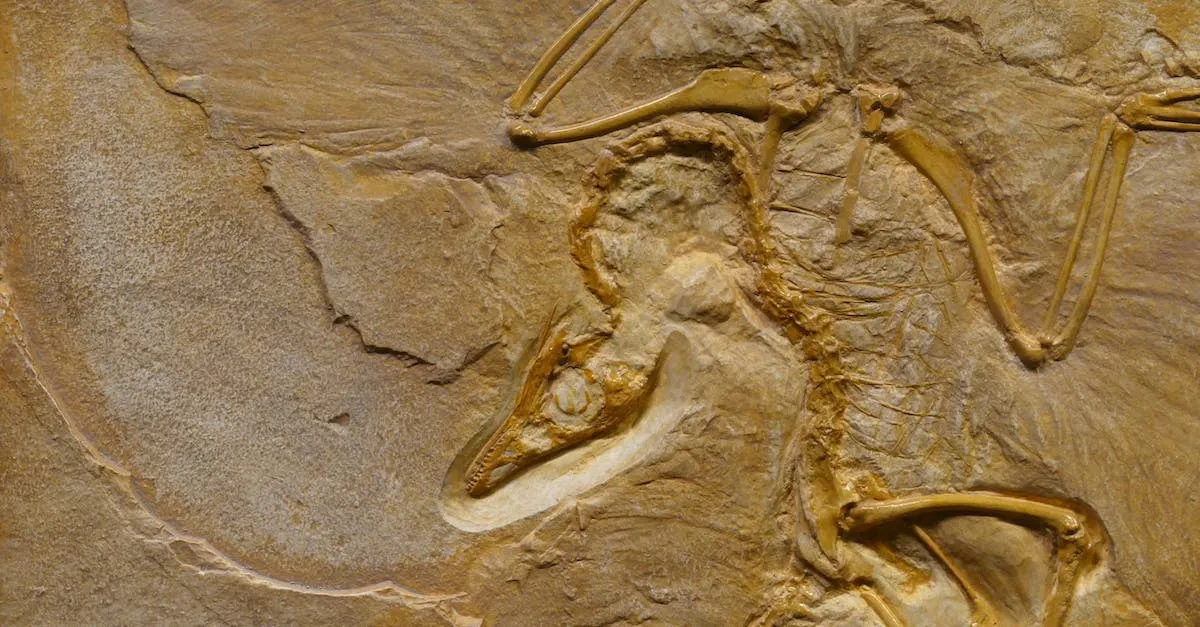Environmental Science Vs. Ecology: Understanding The Distinctions
At first glance, environmental science and ecology may seem like interchangeable fields. Both examine the natural world and human impacts. However, ecology represents just one facet of the vast, interdisciplinary umbrella that is environmental science.
In brief: Ecology focuses specifically on organisms and their environments, while environmental science encompasses ecology along with earth sciences, chemistry, physics, policy, ethics, and more. For an in-depth look at how these two fields differ in scope, approach, and real-world application, read on.
Defining Ecology and Its Core Focus
When it comes to understanding the natural world and how organisms interact with their environment, two disciplines stand out: environmental science and ecology. While these terms are often used interchangeably, it is important to recognize the distinctions between them.
Let’s start by delving into the field of ecology and its core focus.
Studying Organisms and Habitats
Ecology is the scientific study of the relationships between organisms and their environment. It explores how living organisms interact with each other and with their physical surroundings. Ecologists study a wide range of organisms, from microscopic bacteria to towering trees, and everything in between.
They also examine various habitats, such as forests, deserts, oceans, and urban environments, to understand how these ecosystems function.
Ecologists gather data on population dynamics, species distribution, and the abundance of different organisms within a given habitat. By analyzing this data, they can gain insights into the factors that influence the health and sustainability of ecosystems.
This knowledge is crucial for developing strategies to conserve biodiversity and protect the delicate balance of nature.
Understanding Interconnected Systems
One of the key aspects of ecology is recognizing the interconnectedness of all living things. Ecologists study how different species interact with each other and with their environment. They investigate the intricate webs of relationships that exist within ecosystems, such as predator-prey interactions, symbiotic relationships, and the flow of energy and nutrients through food chains and food webs.
By understanding these interconnected systems, ecologists can better predict the consequences of disturbances or changes in the environment. For example, they can assess the impact of climate change on species migration patterns, or the effects of human activities on the delicate balance of marine ecosystems.
This knowledge is essential for making informed decisions about conservation and sustainable resource management.
Niche Concepts and the Web of Life
Ecology also delves into the concept of ecological niches, which refers to the specific role that a species plays within its ecosystem. Each species occupies a unique niche, with its own set of interactions, behaviors, and adaptations.
Ecologists study how these niches influence species survival and competition, and how they contribute to the overall biodiversity of an ecosystem.
Furthermore, ecology explores the web of life, where the actions of one species can have far-reaching effects on other species and the entire ecosystem. For instance, the decline of a predator species can lead to an increase in its prey population, which in turn can impact the availability of resources for other organisms.
These intricate interactions highlight the importance of maintaining ecological balance and preserving the diversity of life on our planet.
For more detailed information about ecology, you can visit www.ecology.com.
The Broad, Interdisciplinary Nature of Environmental Science
Environmental science is a field of study that encompasses a wide range of disciplines and areas of expertise. It draws upon knowledge from various scientific disciplines to understand the complex interactions between humans and the environment.
By examining the natural world and human activities, environmental scientists strive to find sustainable solutions to pressing environmental challenges.
Earth Sciences: Geology, Oceanography
Geology and oceanography are two important branches of earth sciences that contribute to the field of environmental science. Geologists study the composition, structure, and processes of the Earth’s crust, providing valuable insights into geological hazards, such as earthquakes and volcanic eruptions.
Oceanographers, on the other hand, focus on the study of the world’s oceans, including their physical properties, marine life, and the impacts of human activities. Understanding these earth sciences is crucial for comprehending how natural processes shape the environment and how human activities can influence them.
Biological Sciences: Ecology, Toxicology
Ecology and toxicology are key branches of biological sciences that play a significant role in environmental science. Ecology is the study of the interactions between living organisms and their environment.
It helps us understand how ecosystems function and how they can be impacted by factors such as climate change, habitat destruction, and pollution. Toxicology, on the other hand, focuses on the effects of chemicals and pollutants on living organisms and ecosystems.
By studying the impacts of toxins on wildlife and ecosystems, environmental scientists can assess the risks associated with human activities and develop strategies to mitigate them.
Physical Sciences: Chemistry, Physics
Chemistry and physics are fundamental disciplines in environmental science. Chemistry provides insights into the composition and behavior of matter, including pollutants and their transformations in the environment.
It helps us understand the chemical reactions that occur in ecosystems and the potential impacts of pollutants on human health and the environment. Physics, on the other hand, contributes to environmental science by examining energy flows, climate patterns, and the physical processes that shape the Earth’s systems.
These disciplines provide the foundation for understanding the physical aspects of environmental science and finding sustainable solutions to environmental challenges.
Social Sciences: Law, Ethics, Policy
The social sciences, including law, ethics, and policy, are integral to environmental science. Environmental laws and regulations play a crucial role in protecting natural resources and ensuring sustainable development.
Ethical considerations help guide decision-making processes by evaluating the moral implications of human actions on the environment. Policy development is essential for implementing effective strategies to address environmental issues on local, national, and global scales.
The social sciences provide the framework for understanding the human dimensions of environmental science and shaping policies and practices that promote environmental stewardship.
Tools and Methodologies in Each Field
Fieldwork in Ecology vs. Lab Work in Environmental Science
Ecology and environmental science are two distinct fields within the broader realm of environmental studies. One key distinction lies in the tools and methodologies used in each field. In ecology, fieldwork plays a crucial role in understanding the interactions between organisms and their environment.
Ecologists often venture into natural habitats to observe and collect data on species diversity, population dynamics, and ecosystem functioning. Through fieldwork, ecologists can gather firsthand information about the intricate relationships that exist in the natural world.
On the other hand, environmental science tends to rely more on laboratory work to analyze samples and quantify environmental parameters. Environmental scientists may conduct experiments, perform chemical analyses, or use sophisticated instruments to measure pollution levels or assess the impact of human activities on ecosystems.
This laboratory-based approach allows for controlled experiments and precise measurements, providing valuable insights into the intricate workings of environmental systems.
Quantitative Modeling Approaches
Both ecology and environmental science employ quantitative modeling approaches to understand complex environmental phenomena. In ecology, researchers use mathematical models to simulate ecological processes, such as species interactions, population dynamics, and ecosystem dynamics.
These models help ecologists make predictions about how ecosystems may respond to changes in environmental conditions or human interventions. For example, ecologists might use models to predict the effects of climate change on biodiversity or to design effective conservation strategies.
In environmental science, quantitative modeling is used to understand pollution dispersion, predict the impact of industrial activities, or assess the effectiveness of environmental policies. Environmental scientists often rely on computer simulations to model the behavior of pollutants in the atmosphere, water bodies, or soil.
These models can provide valuable insights into the potential risks associated with certain pollutants and help guide decision-making processes to mitigate environmental impacts.
Complex Systems Analysis
Another area where ecology and environmental science intersect is in the analysis of complex systems. Both fields recognize that environmental phenomena are influenced by a multitude of interconnected factors, making their study inherently complex.
In ecology, researchers study complex ecological networks, such as food webs or nutrient cycles, to understand the dynamics and stability of ecosystems. They employ network analysis techniques to identify key species or processes that play critical roles in maintaining ecosystem health and functioning.
In environmental science, complex systems analysis is used to study the interactions between human activities and the environment. Environmental scientists may use systems thinking approaches to assess the impacts of urban development, industrial activities, or climate change on ecosystems and human well-being.
By considering the interconnections and feedback loops within these systems, scientists can develop strategies to promote sustainable development and minimize negative environmental impacts.
While there are overlaps in the tools and methodologies used in ecology and environmental science, each field has its own unique approaches that contribute to our understanding of the natural world and the impact of human activities on the environment.
Career Paths and Applications
Both environmental science and ecology offer a wide range of career paths and applications. Let’s take a closer look at some of the key areas where professionals in these fields can make a meaningful impact:
Research
Research is at the heart of both environmental science and ecology. Professionals in these fields have the opportunity to conduct groundbreaking research that contributes to our understanding of the natural world and helps inform important decisions in environmental management and conservation.
Whether it’s studying the effects of climate change on ecosystems or investigating the impact of pollution on wildlife, research plays a crucial role in driving progress and finding solutions to environmental challenges.
Education
Education is another important career path within environmental science and ecology. Many professionals in these fields work in academic institutions, where they teach and mentor the next generation of environmental scientists and ecologists.
By sharing their knowledge and expertise, they help shape the future of the field and inspire young minds to make a positive difference in the world.
Sustainability Planning
In an era of increasing concern about the environment, sustainability planning has become a vital aspect of environmental science and ecology. Professionals in these fields work with governments, businesses, and communities to develop and implement strategies that promote sustainable practices and reduce environmental impact.
This can involve everything from designing energy-efficient buildings to creating policies that protect natural resources and promote biodiversity.
Environmental Consulting
Environmental consulting is another exciting career option within the realm of environmental science and ecology. Consultants in this field work with a variety of clients, including government agencies, private companies, and nonprofit organizations, to assess and mitigate environmental risks.
They provide valuable expertise and guidance on issues such as pollution prevention, habitat restoration, and environmental impact assessments.
Conservation
Conservation is a core focus of both environmental science and ecology. Professionals in these fields play a crucial role in preserving and protecting our natural resources and biodiversity. They work in national parks, wildlife reserves, and other protected areas to manage ecosystems, monitor wildlife populations, and implement conservation strategies.
Their efforts are essential for maintaining the delicate balance of our planet’s ecosystems and ensuring the long-term survival of endangered species.
Collaboration Between Disciplines to Solve Problems
Environmental science and ecology are two closely related disciplines that often collaborate to solve pressing environmental issues. By combining their expertise, scientists from these fields can work together to develop effective strategies for addressing challenges such as climate change, pollution, natural resource management, and improving human and ecosystem health.
Climate Change Mitigation
One area where environmental science and ecology collaborate is in climate change mitigation. Climate change is a global issue that requires a multidisciplinary approach. Environmental scientists study the causes and impacts of climate change, while ecologists examine how ecosystems are affected by rising temperatures and changing weather patterns.
By working together, they can develop strategies to reduce greenhouse gas emissions, protect vulnerable ecosystems, and adapt to the changing climate.
Pollution Reduction
Another important area of collaboration between environmental science and ecology is pollution reduction. Environmental scientists study the sources and effects of pollution, while ecologists investigate how pollution impacts ecosystems and species.
Together, they can develop methods to reduce pollution, restore habitats, and protect the health of both humans and wildlife. This collaboration is crucial for ensuring a clean and sustainable environment for future generations.
Natural Resource Management
Environmental science and ecology also collaborate in the field of natural resource management. Environmental scientists study the availability and sustainability of natural resources such as water, forests, and minerals, while ecologists examine how ecosystems depend on and interact with these resources.
By working together, they can develop strategies for sustainable resource use, conservation, and restoration, ensuring the long-term health and productivity of our natural ecosystems.
Improving Human and Ecosystem Health
Lastly, environmental science and ecology collaborate to improve human and ecosystem health. Environmental scientists study how environmental factors impact human health, while ecologists investigate how changes in ecosystems affect the well-being of species and biodiversity.
By combining their expertise, they can develop policies and practices that promote both human and ecosystem health, ensuring a harmonious coexistence between people and the environment.
Conclusion
While ecology focuses on organism-environment interactions, environmental science connects organisms, environments, humans, and our planet through diverse disciplines. Both fields provide crucial perspectives and tools to understand and protect our world.
Collaboration across these complementary disciplines will allow us to gain deeper insights and build sustainable solutions to emerging environmental challenges.







